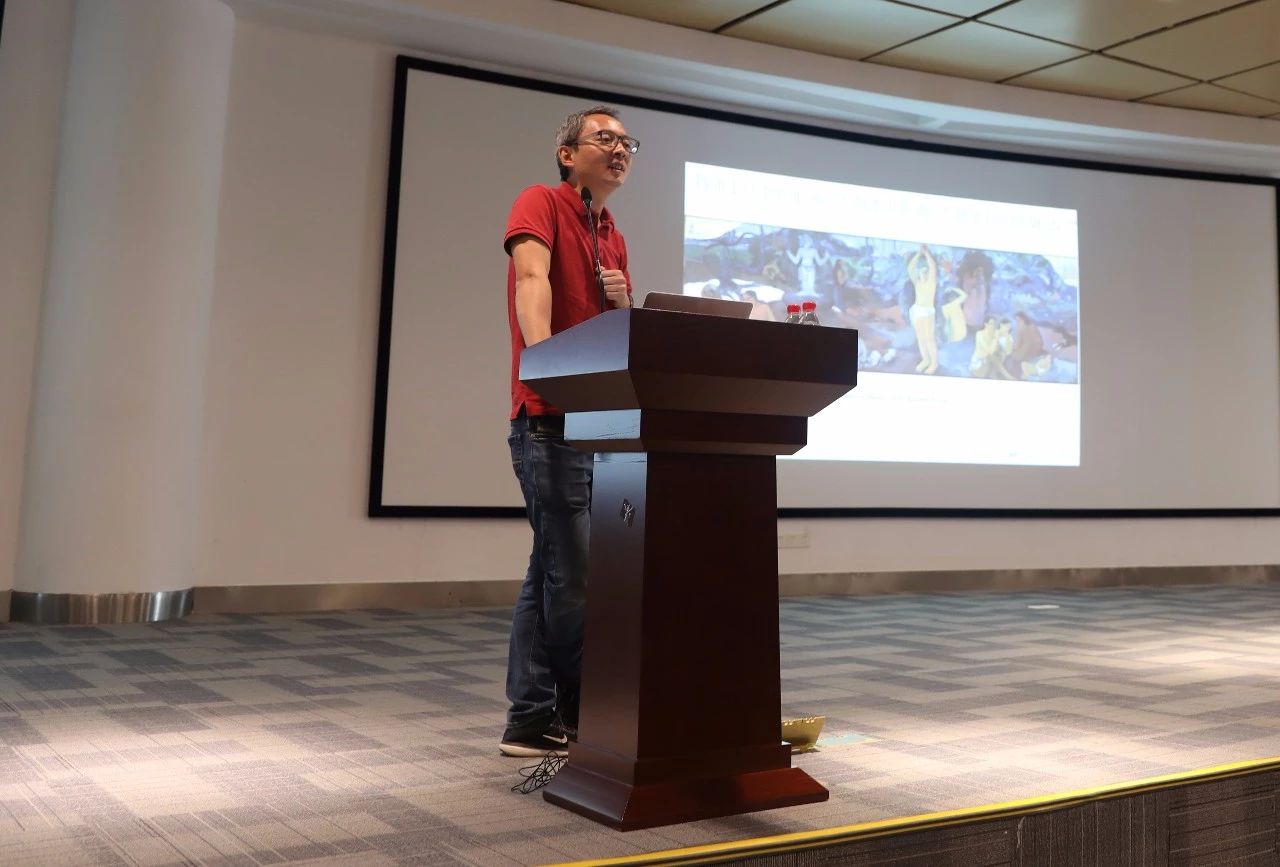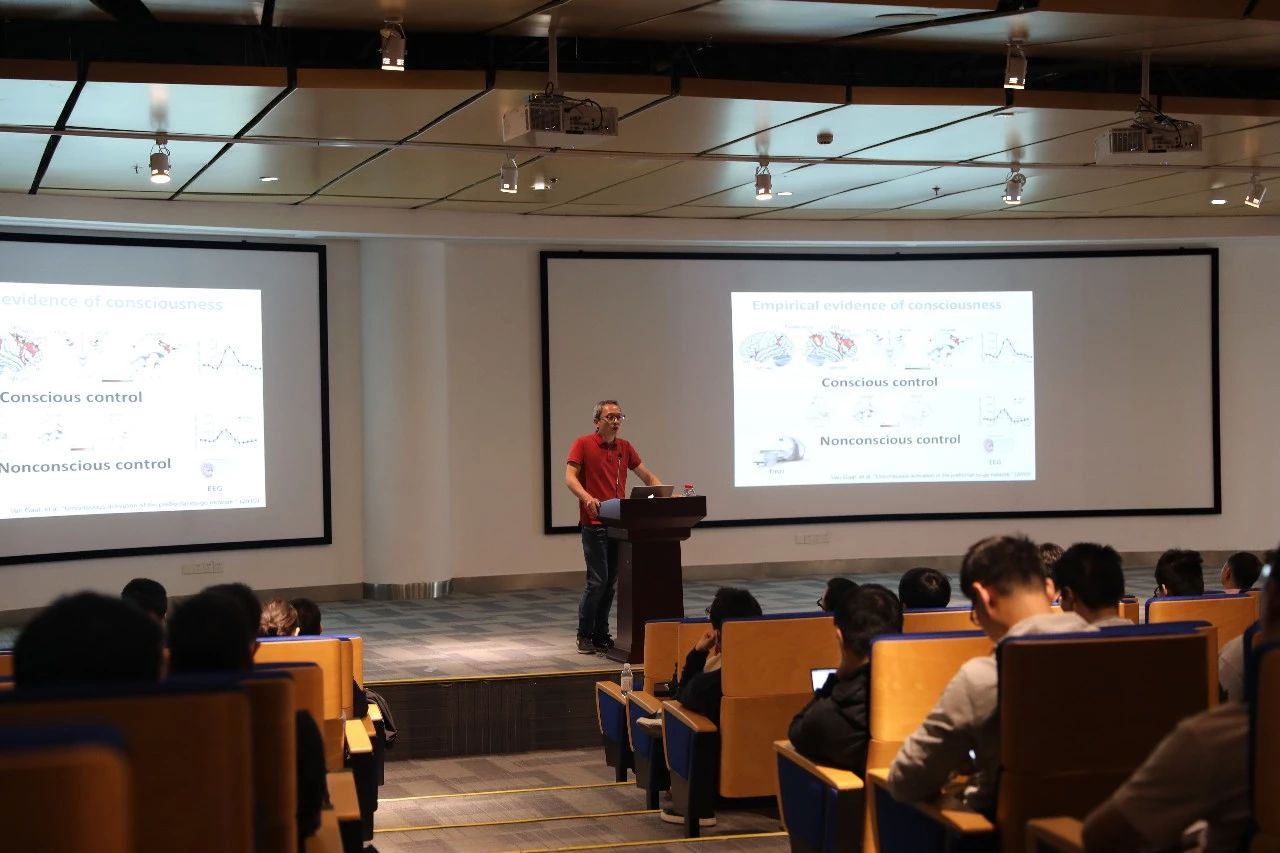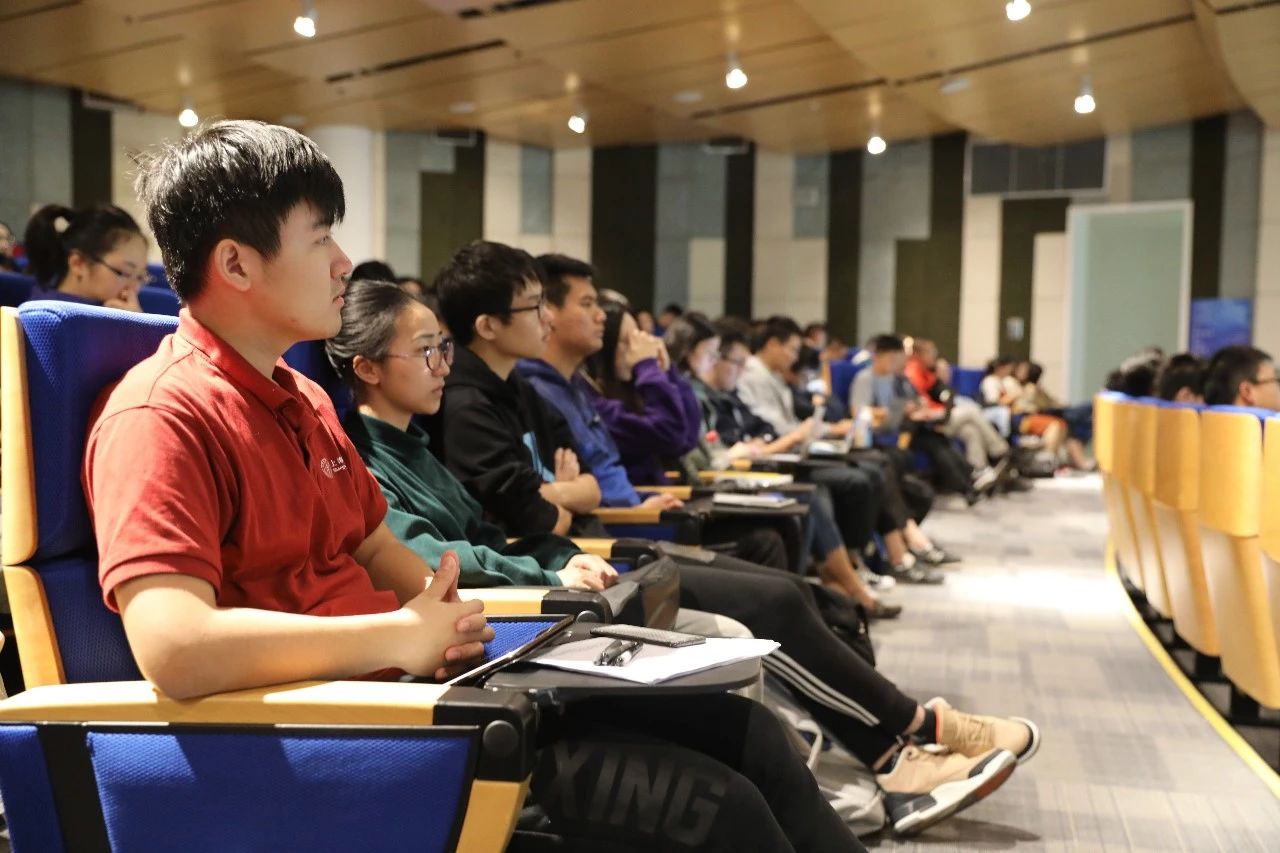On October 12, 2018, Professor Jun Wang from the Department of Computer Science, University College London gave a lecture on machine consciousness at ShanghaiTech.

At the beginning of the lecture, Prof. Wang talked about the exploration of human consciousness. From Descartes's I think so I am, to the first time people used scientific methods to study the subjective feelings of people in the 1990s, people’s exploration of the conscious world has never stopped. Today, scientists have discovered that the effects of dopamine on the nervous system have a similar principle to machine-enhanced learning. Based on this groundbreaking study, researchers began to link artificial intelligence to human consciousness.
So, what is the point of research on human consciousness by scientists? Prof. Wang said at the level of cognitive science that consciousness is a stage when people accept environmental stimuli and combine historical information in the brain to mobilize various neurons to work together to ultimately output feedback on the environment. Therefore, simple input or output such as face recognition technology cannot generate consciousness. This means that the study of machine consciousness is inseparable from neuroscience. However, with the input and output of information, will it be conscious? The answer is no, only when the information is very effectively integrated, it will generate consciousness. This means that AI with RAM, memory, and information recognition is likely to generate awareness.

Then, Prof. Wang introduced the development status of AI. Nowadays, reinforcement learning is widely used in the field of AI. Machine receives environmental information, and then returns the decision to the environment, and the environment returns feedback from the outside world. Just as the current hot game Bottle Flip, after the intensive study of the mechanical arm, focusing on the direction and distance of advancement, it has been able to achieve a score of 200 or more. However, current reinforcement learning does not make the machine aware, because the machine can't combine the internal and external information, think through the subjective feelings and make the final decision.
The current AI research has made a major breakthrough. Alpha Go can only make independent decisions by modeling the external world. However, the current technology allows AI to not only model opponents, but also communicate information with peers to optimize their own decisions. For example, the bridge competitive robot automatically learns the rules of Hands-bid bid-Hands through non-verbal information exchange, which greatly optimizes the next step and improves the probability of winning. This modeling mechanism for opponents and partners is also widely used in real life. For example, in the competition of Internet advertising, artificial intelligence optimizes its choices by analyzing the competitors' schemes and combining the situation of the partners, and finally gives the optimal solutions.

Prof. Wang also emphasized that artificial intelligence has brought great convenience to our daily life by strengthening learning and optimizing decision-making. In Taobao's webpage advertising management, AI optimizes the advertisements after classification, which is convenient for consumers to purchase. The major e-commerce platforms also model the cooperation of robots, so that robots can sort mails through information exchange to avoid collision problems. Drip travel, when the user orders are allocated, the COD algorithm is used to optimize the travel route, which greatly improves the traffic congestion in the city. Prof. Wang also predicted that intensive learning will be more widely used in areas such as finance.
In the final Q&A session, Prof. Wang stated that the current robots were still unable to have consciousness. However, if World Model is implanted into the machines through reinforcement learning, perhaps machine consciousness will become a reality in the near future.


